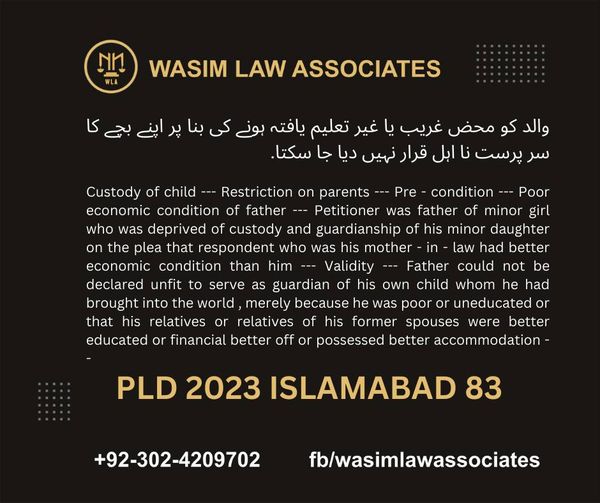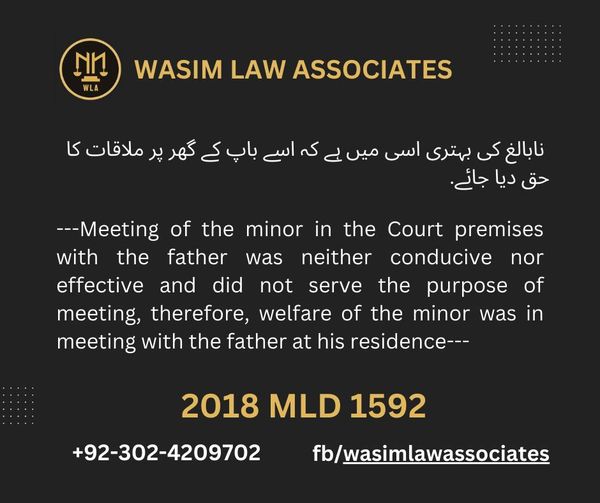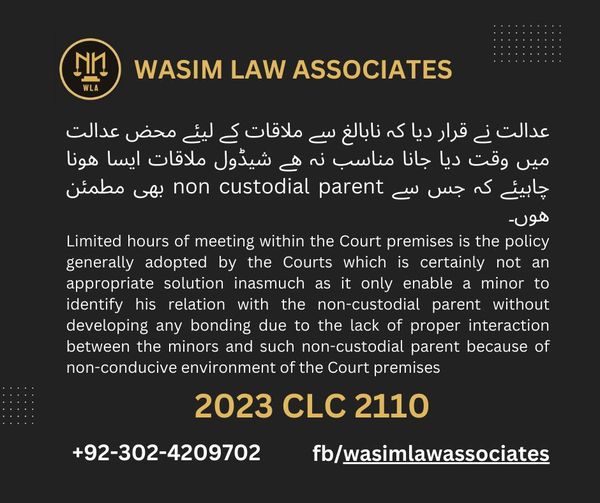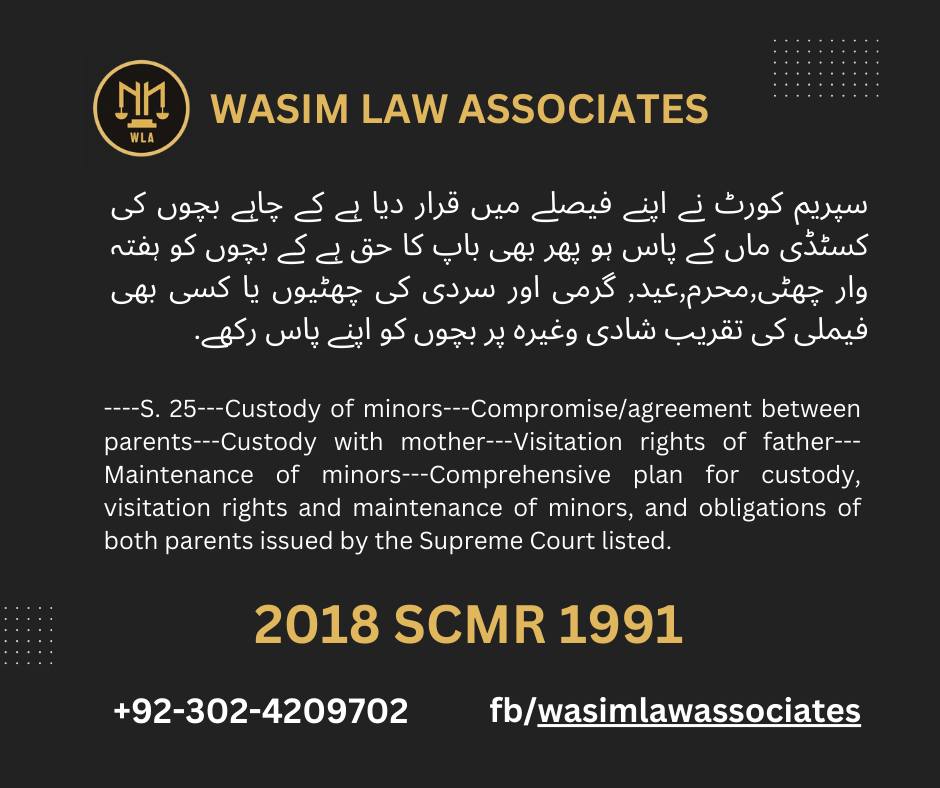Wasim Law Services
Child custody services
Child Custody Services
Child Custody Services -The best interests of the minor must come first when the matter is brought before the court. When dealing with such cases, courts must operate in loco parentis and take several factors into account. However, this is not always the case, with Pakistani courts resolving guardianship and custody issues pending adjudication.
The non-custodial parents have actually been abused and victimized in the great majority of cases that are ongoing in several guardian courts in Pakistan under the pretext of procedural issues, particularly during the status of minor custody and divorce processes. A very restricted visitation schedule is granted to the non-custodial parent to meet the children, even after months of waiting for the initial in-person meeting. This visitation schedule on court premises is often as little as once a month for two hours. It is surprising to learn that this visitation schedule has become standard practice in Pakistan's guardian's courts, having been adhered to for many years. Stated differently, the visitation order issued to non-custodial parents in guardian courts has evolved to resemble a "template" that calls for two hours of court time once a month. Furthermore, a custodial parent can easily circumvent the previously specified two-hour visiting schedule by producing a fictitious medical certificate expressing their inability to attend. The non-custodial parent is forced to wait for the next scheduled meeting in such circumstances. Guardian courts typically take a relatively lenient stance toward these justifications offered by custodial parents.

When can a child custody case be filed in court?
When a husband and wife separate or divorce and are unable to agree on a mutually beneficial parenting plan, the non-custodial parent may file a child custody claim with the court right away.
Does a mother lose custody of her minor child after asking the court for Khula?
Because she got Khula from her husband, the mother did not forfeit her right to custody of the minor child. It is a complete misconception from a legal and factual standpoint.
When a mother enters into a second marriage, does she forfeit custody of her minor child?
No, it is incorrect that a mother who gets married a second time forfeits her parental rights. demonstrating that they can't make it. After a separation or divorce, a husband may sometimes take custody of a minor child. In a court of law, the non-custodial parent is the one who always makes a custody claim against the custodial parent.
Who Can File a Child Custody Case in Court?
After a separation or divorce, the spouse may sometimes take custody of the minor child against the child's will. The non-custodial parent is the one who makes a custody claim against the custodial parent in a court of law.
How Does One File a Court Case for Child Custody?
A parent who is not a custodial parent must file a custody claim in court. To file a child custody claim, it is necessary to retain the services of a competent child custody attorney, who will review the case's facts and circumstances before submitting the necessary paperwork. The custodial parent is summoned by the court to file a written response as soon as the case is filed. Each side must present the strongest evidence to support their position once the court has heard from both parties and has framed questions in the minor's best interest. The court decides whether the minor's mother should continue to have custody of them after considering the evidence that each party deposed.
What Are the Non-Custodial Parents' Rights in Pakistan?
Meeting with the non-custodial parent is in the best interest of the minor, as the Pakistani Court has noted on multiple occasions. Consequently, the non-custodial parent is granted visitation rights and has a legal right to meet the minor child.
What Are the Factors That Pakistani Courts Take Into Account When Making Decisions Regarding Custody Cases?
The best interests and welfare of the kid alone are the court's top priorities when determining who gets custody of a minor. Courts decide who gets custody of a kid if they believe that the minor's best interests are served, and vice versa. There is no hard and fast rule, and the court has complete discretion in deciding whether it is in the best interests of the kid to live with their mother or father. The following are some of the variables that the court may take into account while determining a minor child's custody: The parent with custody changed their Religion. The minor is deprived of education or other necessities. A minor resides in a joint household with, for instance, the custodial parent's brother, who is a hardcore criminal with a court conviction on his record. Minor children's upbringing may be impacted by the negative perception custodial parents have in society.









